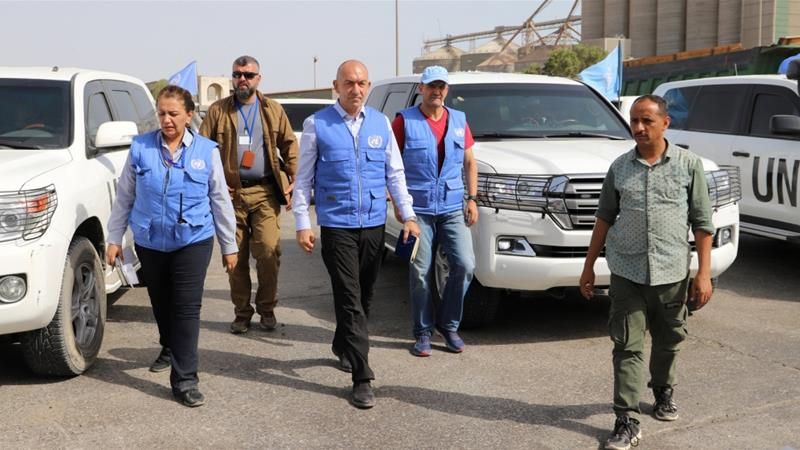
Local Editor
Yemen's warring parties have agreed to new measures to enforce a ceasefire and facilitate a troop pullback from the flashpoint port of Hodeida, the United Nations said on Monday.
Representatives of Yemen’s Houthi movement and the Saudi-backed resigned regime of former president Abd Rabbu Mansour Hadi met on a UN ship in the Red Sea for talks on Sunday and Monday, the organization said in a statement.
The UN is trying to broker a withdrawal from Hodeida - the main entry point for food and humanitarian aid - so UN-supervised management can take over.
Yemen's four-year war has killed tens of thousands of people and left millions on the brink of famine.
The statement said both sides want to reduce hostilities after a rise in ceasefire violations at Hodeida.
"They agreed on a mechanism and new measures to reinforce the ceasefire and de-escalation, to be put in place as soon as possible," it said, without giving more details.
The two sides met as members of the Redeployment Coordination Committee, a body set up by the UN and chaired by Danish Lieutenant-General Michael Lollesgaard to oversee the ceasefire and troop exit.
The committee finalized a conceptual agreement on troop withdrawals, which now requires political leaders' buy-in, the statement said.
Political leaders would also have to agree on "local security forces, local authority and revenues", the statement said, without elaborating.
The meetings, which were last held in February, kicked off on Sunday at the Antarctic Dream vessel in the Red Sea, some 30km off Hodeida on Yemen's western coast.
The UN chartered the vessel as neutral territory between the two rival sides to hold the two-day meetings.
The Houthis and the Hadi regime are tasked with withdrawing forces from Hodeida as part of the ceasefire deal that was reached last December in Sweden's capital, Stockholm.
The pullback was supposed to have taken place two weeks after the ceasefire went into force on December 18, but that deadline was missed.
In May, the UN announced the Houthis had withdrawn from Hodeida and two other nearby ports, the first practical step on the ground since the ceasefire deal.
Lollesgaard confirmed in June there had been no Houthi military presence in all three ports since their withdrawal a month before.
The UN is hoping that de-escalation in Hodeida will allow desperately needed food and medical aid to reach millions in need in Yemen.
The Red Sea port is the entry point for the bulk of imported goods and relief aid to Yemen, which the UN has described as the world's worst humanitarian crisis.
The conflict in Yemen broke out in late 2014. Tens of thousands of people have been killed since the Saudi-UAE-led military coalition intervened in support of the beleaguered Hadi regime in March 2015, according to the World Health Organization.
The fighting has also forced millions from their homes and left 24.1 million - more than two-thirds of the population - in need of aid.
Source: News Agencies, Edited by Website Team